EV battery manufacturers develop new silicon anode material
South Korean battery manufacturers in the EV sector are accelerating their development work on silicon anodes. This new material could reduce the production costs of EV batteries while increasing battery capacity. Manufacturers are trying to boost the performance of EVs with silicon anodes to compete against the flood of cheap EV batteries from China. In many cases, products from the fields of batteries and electromobility in general require KC certification for Korea in order to be approved for import and sale there.
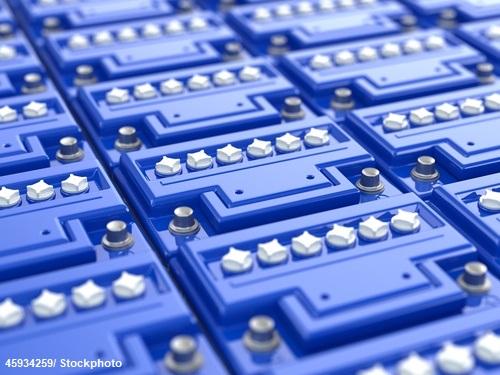
LG Chem plans to invest about $4.7 billion over the next three years to develop new materials for EV batteries. According to a report by Business Korea, research into new anodes will make up the majority of the budget. LG Chem, for example, is working on anodes made of pure silicon, while anodes available on the market today only have a silicon content of five per cent. SKC invested 80 million US dollars in Nexeon last year. Together with SKC, the British developer of anodes presented a new anode with at least 15 per cent silicon content. This is currently being tested in batteries from SK On. SKC is also planning to build a production plant for silicon used in anodes.
POSCO Chemical will start up its production plant for silicon anodes later this year. Series production and sales are planned for the first half of 2024. For this purpose, POSCO Holdings bought Tera Technos and renamed it POSCO Silicon Solutions in July 2022. Currently, Daejoo Electronics is the only South Korean company that has successfully launched silicon anodes. The material for their silicon anode has a silicon content of five per cent and is sourced from LG Energy Solution. Daejoo Electronic plans to increase the silicon content to seven percent by 2027.
As mentioned earlier, silicon anodes have advantages in terms of lower cost and higher capacity of the batteries. The current main material for EV battery anodes is graphite. It is estimated that a pure silicon anode could have 1,000 times the capacity of a graphite anode. The price of graphite has risen with the increasing number of EVs sold. The current price per tonne is about 800 US dollars and will rise to 1,000 US dollars by 2025. Last year, China contributed 82 per cent of global graphite production. The global market for silicon anodes will be worth 6.92 billion US dollars in 2026, according to experts, while annual growth will be 23.4 per cent.
Certifications for the Korean market are a complex hurdle and difficult to navigate due to different authorities and certification systems. With over 15 years of experience in the certification business, MPR International GmbH is your best point of contact for competent service when it comes to exporting to Korea. For example, KC Safety is relevant for electronics and household products, which are mostly intended for consumers, as well as products for children and babies.
Feel free to contact us any time if you need assistance or have any questions regarding Korean certifications like KC, KC EMC, KCs, KCs for explosion safety products or KGS factory registration.
Tel. Europe: +49-69-271 37 69 261 Tel. US: +1 773 654-2673
Email: info@korea-certification.com
For more information you can download our free brochure “Korea Certification Made Easy – The Booklet“.
South Korea plans to ease regulations to promote investment in the battery and energy industry
The South Korean government plans to ease rules and regulations in the battery, EV and energy industries. This is expected to attract the equivalent of US$2.1 billion in investment and create 12,000 new jobs. The decision was made in early March during a government meeting led by Prime Minister Han Duck-soo. The battery and power industry is a multi-faceted intersection for product categories of many other industries. Products in these fields often require KC certification, KCs certification or other Korean product certifications to be approved for the Korean market.
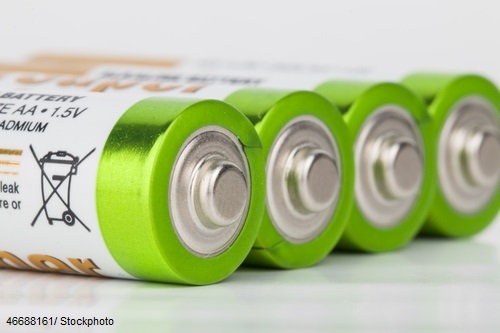
LG Energy Solution Ltd. could be the first company to benefit from the relaxed regulations, writes Pulsenews Korea. The nation’s largest producer of EV batteries is currently facing problems for approval to build its battery factory in Ochang, North Chungcheong Province. LG Energy has to comply with certain regulations when constructing buildings that handle hazardous substances. These were ultimately observed, but only because the factory was already planned as a so-called “smart factory”. On the other hand, exemptions were granted for fire protection, which was found to be deficient in a test by the Korea Fire Institute. However, the process was time-consuming and threw schedules into disarray. The battery manufacturer could only proceed with the construction of the factory when the government intervened with a fast-track procedure for further safety testing.
The government also decided to immediately suspend certain rules for participation or comment on energy projects in order to speed them up. These include the construction of an LNG plant in Dangjin, an LNG storage depot in Gwangyang and the designation of an industrial zone in the Masan Free Trade Zone. In addition, the robotics industry is to be promoted by removing regulations. The government expects the industry to grow 13 per cent annually from the current US$28.2 billion to US$83.1 billion. For example, there are plans to expand the use of robots and make their use on pavements possible.
Certifications for the Korean market are a complex hurdle and difficult to navigate due to different authorities and certification systems. Feel free to contact us any time if you need assistance or have any questions regarding Korean certifications like KC, KC EMC, KCs, KCs for explosion safety products or KGS factory registration.
Tel. Europe: +49-69-271 37 69 261 Tel. US: +1 773 654-2673
Email: info@korea-certification.com
For more information you can download our free brochure “Korea Certification Made Easy – The Booklet“.
SK On takes aim at Chinese monopoly for developing low-cost LFP batteries
The South Korean battery industry is taking further steps in the development of lithium iron phosphate (LFP) batteries. SK On presented a corresponding prototype at the Interbattery trade fair in March, and LG Energy Solution Ltd (LGES) is expanding its product portfolio to include LFP cells. SK On is the first company from South Korea to show a pouch bag cell with LFP chemistry at the country’s largest trade fair. The battery manufacturer has been researching and developing pouch-bag cells since 2021, as demand from the automotive industry has increased since then. Although there is no fixed date for the market launch of the new battery type, SK On expects to start production quickly after the current testing phase. Machines and equipment needed to manufacture products in these product categories generally require KC certification to be approved for import and sale in Korea.
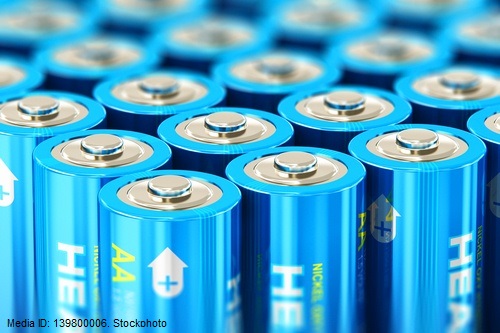
LG Energy Solutions Ltd (LGES) currently manufactures LFP batteries exclusively for electricity storage systems (ESS). There are plans to convert an LGES plant in Nanjing, China, for the production of LFP batteries as well as to set up an LFP production line at the Michigan plant in the USA. The new focus of South Korean battery manufacturers on LFP batteries lies in their cheaper price compared to ternary cells such as NMC, which are currently the flagship of the battery industry. Ternary cells have a higher energy density and range than LFP cells, but car manufacturers prefer LFP batteries because of the lower manufacturing costs.
Tesla already uses LFP batteries for its vehicles manufactured in China. Ford Motor Co. president and chief executive Jim Fairley expressed concerns to the press about the high cost of batteries for EVs. According to him, batteries account for more than 30 per cent of the manufacturing cost of an EV. Therefore, the US carmaker recently announced that it would work with the Chinese battery manufacturer CATL.
Certifications for the Korean market are a complex hurdle and difficult to navigate due to different authorities and certification systems. With over 15 years of experience in the certification business, MPR International GmbH is your best point of contact for competent service when it comes to exporting to Korea. For example, KC Safety is relevant for electronics and household products, which are mostly intended for consumers, as well as products for children and babies.
Feel free to contact us any time if you need assistance or have any questions regarding Korean certifications like KC, KC EMC, KCs, KCs for explosion safety products or KGS factory registration.
Tel. Europe: +49-69-271 37 69 261 Tel. US: +1 773 654-2673
Email: info@korea-certification.com
For more information you can download our free brochure “Korea Certification Made Easy – The Booklet“.
Doosan Enerbility focuses on new materials for small reactors and liquid hydrogen business
Doosan Enerbility, the energy arm of South Korea’s Doosan Group, is focusing on new materials for small-scale nuclear reactors (SMRs) and boosting its liquid hydrogen business, analysts reported in mid-March 2023. Many components and parts used in the hydrogen industry require KC certification or KGS factory registration to be approved for import and sale in South Korea.
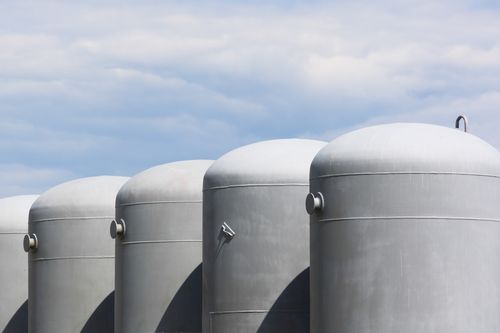
SMRs (small modular reactors) are considered the next generation of reactors. They are smaller and produce less power than previous types. The Doosan subsidiary said it had signed a contract with NuScale Power. NuScale Power from the USA is considered a specialist for small reactors, especially for their vessels and control systems. The components are considered essential for the construction of the first NuScale power plants by 2029, which will be used in a commercial plant in Utah. The client is Utah Associated Municipal Power Systems as part of a zero-emission power plant project.
Doosan Enerbility’s liquid hydrogen business expects further growth thanks to government support. For example, Vice President for Trade, Industry and Energy Park Il-Jun recently visited the hydrogen liquefaction plant in Changwon, South Gyeonsang Province and met with industry leaders. The vice minister held out the prospect of a support programme to drive green energy investment and research.
The Korea Gas Safety Corporation (KGS) is a government organisation under the Ministry of Trade, Industry and Energy (MOTIE). Gas safety regulations in Korea began in 1974 with the passage of the Compressed Gas Control Act. In 1995, the Institute of High Pressure Gas Safety was established, and after several restructurings, the Korea Gas Safety Corporation (KGS) was established in 2001. One year later, KGS was affiliated to MOTIE. KGS was accredited as a Korean Notified Body in 2006 and was also accredited to conduct KCs certification and testing of explosion-proof electrical equipment.
We offer certification services for all product areas, including KC certification for consumer products and especially electronics, KC EMC certification for electronic products and KCs certification for machinery, as well as KCs for explosion-proof products. We are at your disposal for all questions regarding Korea certifications.
Feel free to contact us any time if you need assistance or have any questions regarding Korean certifications like KC, KC EMC, KCs, KCs for explosion safety products or KGS factory registration.
Tel. Europe: +49-69-271 37 69 261 Tel. US: +1 773 654-2673
Email: info@korea-certification.com
For more information you can download our free brochure “Korea Certification Made Easy – The Booklet“.
Kumho Tire supplies Volkswagen with new tyre for the ID.4
South Korean company Kumho Tire is supplying the Crugen EV HP71 for the initial fitting of Volkswagen’s ID.4 e-SUV. The Volkswagen ID.4 is in the top position of Europe’s e-cars (as of 2022) based on sales figures in 10 European countries, including Germany. Contributing factors to its success include its attractive price and the booming market in the mid-size SUV segment. Four tyre sizes can be fitted to the ID.4: 235/55 R19, 255/50 R19, 235/50 R20, and 255/45 R20. Car tyres and other automotive components require KCs certification to be approved for import and distribution in South Korea.
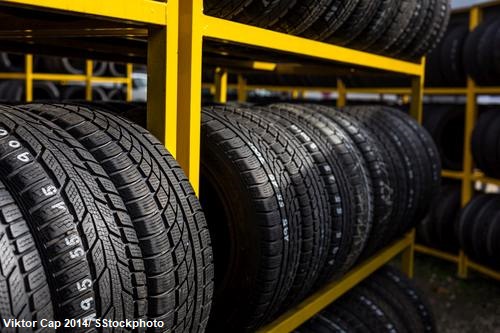
Kumho’s Crugen EV HP71 is a high-performance tyre for SUVs, which has now been adapted for EVs in its new edition. A special EV compound of the raw materials used, including easily dispersible silica, is said to improve driving and braking characteristics. In addition, the Crugen HP71 EV offers increased driving stability, less abrasion and improved braking power compared to other tyres. Kumho Tires has also incorporated technology in the tyre that reduces noise generation from the tyre grooves.
Kumho Tire is developing Original Equipment (OE) tyres for the next generation of EVs in collaboration with leading global car manufacturers. For example, Kumho tyres are fitted on the Kia EV6. The South Korean EV has been a best-seller since its debut in August last year. So far, the new tyres show superior technology and excellent quality.
Certifications for the Korean market are a complex hurdle and difficult to navigate due to different authorities and certification systems. With over 15 years of experience in the certification business, MPR International GmbH is your best point of contact for competent service when it comes to exporting to Korea. For example, KC Safety is relevant for electronics and household products, which are mostly intended for consumers, as well as products for children and babies.
Feel free to contact us any time if you need assistance or have any questions regarding Korean certifications like KC, KC EMC, KCs, KCs for explosion safety products or KGS factory registration.
Tel. Europe: +49-69-271 37 69 261 Tel. US: +1 773 654-2673
Email: info@korea-certification.com
For more information you can download our free brochure “Korea Certification Made Easy – The Booklet“.
LG Electronics expands into growing 5G local area network market
South Korea’s LG Electronics is planning to expand its business into the growing market of so-called private or local 5G networks. This move is intended to help LG offer more products and services in the B2B sector such as network equipment or logistics robots to factories or logistics centres as a turnkey solution. At a shareholders’ meeting at the end of March, LG Electronics presented a corresponding proposal to expand its “communications for enterprise customers” business. To this end, the tech giant will submit an application to the relevant regulatory authority, the Ministry of Science and Information and Communications Technology (ICT), as an operator of local 5G networks. It should be noted that many wireless infrastructure components and parts require KC EMC certification to be approved for import and sale in South Korea.

A local or private 5G network is completely self-contained and shielded from public cellular networks. It is set up inside buildings or industrial facilities to control and monitor machines and processes. Until now, companies had to use public 5G networks, which led to interruptions in data traffic and insufficient data security. In addition to just building private 5G networks, LG Electronics also plans to offer its industrial robots in the process. LG Electronics entered this market in 2018 with the acquisition of Robostar Co. It then invested in numerous start-ups such as SG Robotics, Acryl and Bossa Nova. Robostar makes, among other things, vertical multi-joint robots that are used in production facilities for displays and semiconductors. For example, there are many Robostar robots in LG Electronics’ smart factories at LG Smart Park Changwon.
According to a report by Pulse News Korea, LG Electronics has the proven know-how to operate a private 5G network. The company has filed about 30,000 patents in the 5G field, 10,000 of which are considered so-called “Class A” patents. Moreover, according to experts, LG Electronics is able to manufacture many components in-house and is therefore not dependent on external suppliers. It is considered likely that LG Electronics will build its first private 5G network at its home appliance factory in Tennessee, USA. The factory produces around 1.2 million washing machines annually and already has 160 automated logistics robots. With the commissioning of the local 5G network, LG expects an automation rate of more than 70 per cent.
LG Electronics’ push is expected to intensify international competition in the field of local 5G networks. Estimates suggest that the market will grow to US$41 billion by 2030. LG’s biggest competitor is Samsung Electronics Co, which has already built a dedicated 5G network for Naver Corp’s second headquarters in Seongnam.
We offer certification services for all product sectors, including KC certification for consumer products and especially electronics, KC EMC certification for electronic products and KCs certification for machinery, as well as KCs for explosion-proof products. We are at your disposal for all questions regarding Korea certifications.
Feel free to contact us any time if you need assistance or have any questions regarding Korean certifications like KC, KC EMC, KCs, KCs for explosion safety products or KGS factory registration.
Tel. Europe: +49-69-271 37 69 261 Tel. US: +1 773 654-2673
Email: info@korea-certification.com
For more information you can download our free brochure “Korea Certification Made Easy – The Booklet“.
Exchange of Experience of the Explosion Protection Experts of KOSHA at MPR International GmbH in Frankfurt
On April 26, 2023 a meeting took place at the Frankfurt office of MPR International GmbH with the experts on explosion protection from the Korean Occupational Safety & Health Certification Institute (KOSHA).
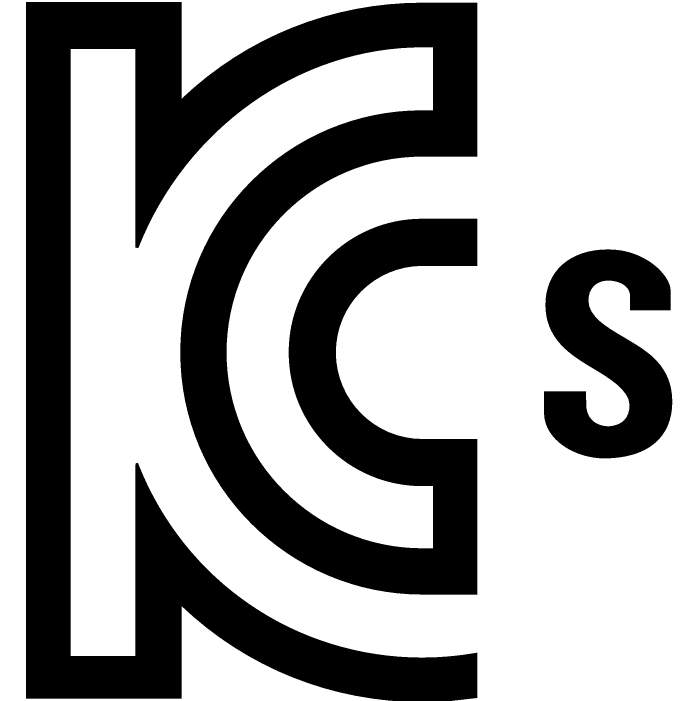
The representatives of the authority informed about the latest developments of harmonization efforts in the field of KCs-Ex certification and the implementation of new standards.
There are already clear parallels in the field of explosion protection between certification in Korea and the International Standard IECEx of the IEC (International Electrotechnical Commission). But it does not stop there, for some products the standard is to be adapted to include full recognition of IECEx certificates in the process.
Another important topic was new certification requirements in the area of machine safety (KCs certification). This involved both mandatory certifications in the KCs area and the voluntary certification S-Mark. The authority talked about the fact that Korean customers are placing increasing emphasis on the safety standards of their suppliers and insisting on alignment with local requirements.
For our work at MPR International this meeting was of particular importance and significance, especially since the philosophy of the Korean certification approach is much easier when one is in direct contact and exchange with the people involved.
We are pleased that we were able to further expand our professional network in the area of test laboratories and authorities in Korea with this exchange of experts and look forward to the developments in a very positive way.
South Korean SK Telecom develops AI patrol robot with other partners
Together with other partner companies, SK Telecom Co. is developing artificial intelligence robots to take over surveillance tasks of security guards patrolling schools and factories. According to a report in the “Korea Economic Daily”, the market launch is to take place before the end of this year. The mobile network company SK Telecom recently announced that it had developed a self-driving patrol robot with AI capabilities. The company worked with robot developer Neubility and security company SK Shieldus. The robot is supposed to move autonomously in a defined area and report unusual events to a control centre. To do this, it transmits images to the command centre and can emit acoustic warning signals. Many components and parts of the robotics industry require KCs certification in order to be approved for import and sale in South Korea.
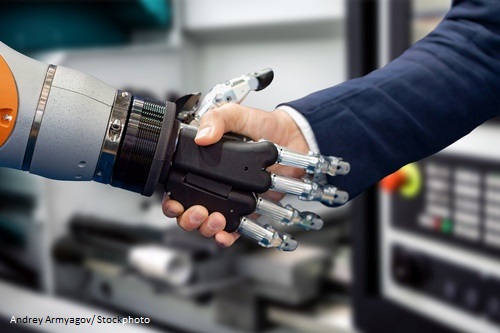
The three companies involved in the development recently signed a memorandum of understanding with the aim of bringing the robot to market later this year. The robot will be used in schools, factories and public facilities that require round-the-clock surveillance. The priority is to use the robot to monitor areas that have many blind spots from existing surveillance cameras.
Prior to the market launch, a one-month test of the robot was conducted in February at Duksung Women’s University in the north of the capital Seoul. The robot covered a distance of 900 metres and sent videos of the area to the command centre. Currently, the test operation is being evaluated by interviewing the university’s security staff. After that, the final functions of the robot will be implemented. According to an SK Telecom spokesperson, the surveillance robot is based on Neubility’s delivery robot called “Neubie”. This is inexpensive to manufacture because, among other things, cameras are used instead of expensive LIDAR sensors. SK Telecom hopes that the self-driving surveillance robot will improve the security of residential and industrial facilities.
KCs certification was introduced in South Korea to ensure basic safety in the design and manufacture of hazardous machinery and protective equipment in hazardous workplaces in Korea. The aim is to protect the health and safety of workers by preventing accidents. We offer certification services for all product areas, including KC certification for consumer products and especially electronics, KC-EMV certification for electronic products and KCs certification for machinery, as well as KCs for explosion-proof products. We are at your disposal for all questions regarding Korea certifications.
Feel free to contact us any time if you need assistance or have any questions regarding Korean certifications like KC, KC EMC, KCs, KCs for explosion safety products or KGS factory registration.
Tel. Europe: +49-69-271 37 69 261 Tel. US: +1 773 654-2673
Email: info@korea-certification.com
For more information you can download our free brochure “Korea Certification Made Easy – The Booklet“.
Incheon airport car park gets infrastructure for liquid hydrogen
South Korea’s largest airport in the capital Seoul, Incheon International Airport, is taking a big step towards environmental friendliness: a large filling station for liquid hydrogen will soon be built there. As Koreabizwire reports, SK Plug Hyverse signed an agreement to this effect with the Ministry of Land, Infrastructure and Transport, the Incheon Municipal Government, Incheon International Airport Corp. and Korea Gas Technology Corp. at the end of February this year. SK Plug Hyverse is a joint venture between SK E&S Co, the energy company of South Korean conglomerate SK Group, and US fuel cell manufacturer Plug Power Inc. Many hydrogen industry components and parts require KGS certification or KC certification to be approved for import and distribution in South Korea.
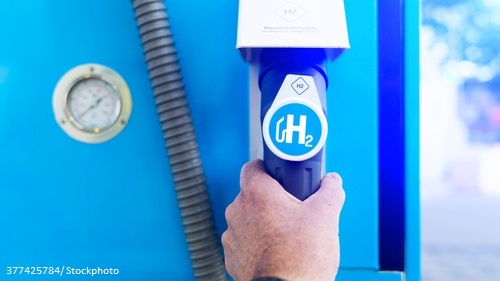
Under the agreement for the construction of the liquid hydrogen filling station, the companies involved will invest around 10 million US dollars. The filling station will be built in the Terminal 2 bus parking lot and is scheduled for completion in 2024. In addition, the signatories of the agreement are working to develop the airport into a hydrogen centre with filling stations, car workshops, parking spaces and opportunities for car washing by using existing buildings. SK Plug Hyverse is responsible for the supply of liquid hydrogen and the operation of the filling points. The airport is served by many long-distance buses, as well as feeder and local buses. The airport also sees a need for a hydrogen filling station for other vehicles such as trucks and forklifts that are operated around the clock. By switching to hydrogen, the airport operator hopes for a noticeable reduction in CO₂ emissions around the airport.
We offer certification services for all product areas, including KC certification for consumer products and especially electronics, KC EMC certification for electronic products and KCs certification for machinery, as well as KCs for explosion-proof products. We are at your disposal for all questions regarding Korea certifications.
Feel free to contact us any time if you need assistance or have any questions regarding Korean certifications like KC, KC EMC, KCs, KCs for explosion safety products or KGS factory registration.
Tel. Europe: +49-69-271 37 69 261 Tel. US: +1 773 654-2673
Email: info@korea-certification.com
For more information you can download our free brochure “Korea Certification Made Easy – The Booklet“.
Samsung Electronics unveils new soundbar as flagship product
South Korean electronics giant Samsung Electronics Co. unveiled its latest soundbar in the premium audio space in mid-March 2023. The technology it contains is designed to improve sound quality and the experience of computer games on TVs. The HW-Q990C model is the top end of Samsung’s Q series of soundbars and features Q Symphony, Space Fit Sound and Game Mode Pro. In order to be sold in South Korea, electronic products are required to have KC Certification.

Q Symphony synchronises the soundbar with the TV speakers to create a surround effect. Space Fit Sound adjusts the sound output to the respective room and location of the TV set. Game Mode Pro automatically optimises sound for different game genres such as shooters and racing games. The HW-Q990C also has a SmartThings hub built in, allowing users to control various smart home devices via the Samsung SmartThings app without the need for an additional hub.
Samsung said it will launch five new soundbar models in South Korea in the first half of 2023. The company aims to establish itself as a provider of the best home entertainment experience with TVs. “The latest Samsung soundbars are designed for better sound and with appealing design,” said Kim Chul-ki, vice president of Samsung’s Visual Display business. “We want to provide customers with the best home entertainment experience when combined with a Samsung TV,” Kim added.
Certifications for the Korean market are a complex hurdle and difficult to navigate due to different authorities and certification systems. With over 15 years of experience in the certification business, MPR International GmbH is your best point of contact for competent service when it comes to exporting to Korea. For example, KC Safety is relevant for electronics and household products, which are mostly intended for consumers, as well as products for children and babies.
Feel free to contact us any time if you need assistance or have any questions regarding Korean certifications like KC, KC EMC, KCs, KCs for explosion safety products or KGS factory registration.
Tel. Europe: +49-69-271 37 69 261 Tel. US: +1 773 654-2673
Email: info@korea-certification.com
For more information you can download our free brochure “Korea Certification Made Easy – The Booklet“.



